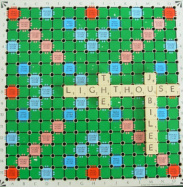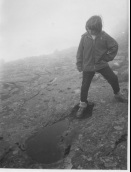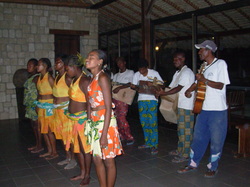
Welcome
I started this blog in 2013 to share my reflections on reading, writing and psychology, along with my journey to become a published novelist. I soon graduated to about twenty book reviews a month and a weekly 99-word story. Ten years later, I've transferred my writing / publication updates to my new website but will continue here with occasional reviews and flash fiction pieces, and maybe the odd personal post.
|
I can't make up my mind about novels about writers and writing.  On the one hand, it seems a bit of a copout for a writer to make her (or more often his) main character another writer, a way of sidestepping the fact that a year of waiting tables, colourful or arduous as it might be, has little bearing on the working lives most of her readers, constantly updating their CV's. Who cares about the writing life anyway, except for other writers (although I confess that there seem to be enough of us about to make this a big enough market to target)? Despite, through this blog, I'm buying into the current requirement for self-promotion, and I'm sure Shelley Harris was being modest when she protested she was ordinary, generally I believe we writers are less interesting than what we write.
8 Comments
Ooh Our ‘Ilary! Didn’t your mother ever warn you too much reading and writing would come to no good? A sensible lass would have bailed out after A-levels and had done with Opinions, but no, you would keep beavering away. You might have thought that all you were doing was opening your eyes and describing what was around you, but hey, didn’t they have a book called Nineteen Eighty-Four in them libraries down south?
Ooh the Shame of it! A telling off from our Dear Leader – and our Dear Unleader to boot. No matter that you’re a double Booker prizewinner and he seems not to have two IQ points to rub together. No matter that he can condone sending drones to Pakistan and hosting food banks back home in a country of billionaires, you are clearly the Villain of the piece. Never mind, some good will come out of this in the end. Intelligent women, save the most foolhardy and feisty, will learn to bury their lights under a bushel, if that’s the right cliche, and the Stupid will rule the world. For the full story, see Hadley Freeman, Zoe Williams  Here's the competition link and here's the back story: I've got a voucher offering a substantial discount off a beginner's writing contest to give away. I won it by not being a beginner and would prefer it not to go to waste. I've never hosted a competition on this website and I thought it might be fun. I've set it as a reading task, in order to be scrupulously fair on people merely contemplating learning to write fiction, as well as enabling me to test out something regarding the opening of my novel. I've given the competition closing date around the time the snowdrops will be withering away. I've scattered seeds where I could around the internet, but this town-crier lark is still quite new to me, and it's hard enough to bring the writers in to see what's here, let alone the non-writers who, by definition, don't have writing websites and blogs. So if you can pass this on somewhere it might be of interest, please do. Thank you. And, just to clarify, I'm expecting the snowdrops to be gone by the end of March.  Now that I’ve uploaded a second interview, it seems time for a proper launch of the author interviews section of annethology. Thanks to Alison and Shelley for your thoughtful responses to my amateur questions and I hope that others find the interviews an interesting and enlightening read. While it might be premature to look for patterns across such a small sample, it would be a pity to throw up the opportunity to give it a try. Blame it on Shelley for introducing the idea of the unconscious, but was there a reason for kicking off with these two particular authors and their books? Two first novels by female writers, albeit very different in tone and style, yet both featuring middle-aged men haunted by the past. Books I’d enjoyed reading, and that had also intrigued me, made me think. Books that had done well in the marketplace, so other readers and novice writers might be curious too. I wasn’t thinking much deeper than that when I contacted the authors, unsure how willing they’d be to take part.  The Giant Stride Elidir Fawr Here’s a link to a lovely humourous post about writerly ambition that we can all identify with (even if we daren’t admit it) to brighten a dismal February. You really have to know what you’re doing as a writer to pull off a faux naive, grandiose yet faintly self-deprecating self-satirising voice, and Shalom Auslander certainly hits the spot for me. In an rare spirit of fairness and compassion, the British House of Commons voted yesterday in favour of gay marriage. My first thought was, Elvira will be pleased. (Okay, to be scrupulously honest, I had to scrabble around in my brain for her name, as it doesn’t quite suit her, and, besides, it’s her partner, Geraldine, I know best. Even so, it was Elvira, I thought of. She’s the one who’s refused to compromise and settle for a civil partnership while they’ve been bringing up their kids together.)
So why haven’t I sent the happy couple a congratulatory card or email or text? Because it would be the adult equivalent of forwarding a letter to Santa up a bricked-in chimney. You see, Elvira and Geraldine are characters in my will-it-ever-be-published novel, Sugar and Snails. Whisper it gently, so as not to offend them, but they’re just made up. We get plenty of writerly advice about making our characters live and breathe like real people, but is there ever a point when they could become too real and, like Frankenstein’s monster, take over our lives? Or is that the whole point of being a writer, to create an alternative landscape that’s somehow more bearable (yes, even if it’s a dystopia, even if it’s super real) than the one we occupy day-to-day: My story, Silver Bangles, is published today by Amarillo Bay. I wrote the first draft a few years ago, on return from a holiday in Madagascar, and, reading through the proofs last month, I couldn't stop myself from also checking my version of events in the story against the actual experience.  Before I lose myself, and you, in a reverie of dancing lemurs, spiky botanics, beautiful beaches and a fascinating culture of ancestor worship – this is not supposed to be a what-I-done-on-my-holidays kind of blog – do take a moment to listen to the music …  … a haunting melody that had me in tears when I first heard it beautifully performed by these young people from a village in the middle of nowhere (although the link takes you to a professional recording with a delightful picture of zebu that I doubt had much to do with producing it). Anyway, it had me thinking, as is my wont, about how the boundary between memory and imagination is a lot more fuzzy than we might like it to be and, remembering something as having happened, is insufficient evidence that it actually did. I wonder how much writing stories about events close to our lived experience, about things that might have happened, but didn't, changes our memories and constructions of our own pasts and who we are.
Strong feelings abound concerning Faber's cover for the 50th anniversary edition of Sylvia Plath's The Bell Jar. Against a background that acknowledges the frequent mismatch between a book's cover and its content, Plath aficionados have reached for their keyboards to express their outrage – and occasional support – for this particular choice.  Sorry, but I can't see what they're so het up about. I think the image of a young woman fixing her make-up in a powder compact is entirely appropriate, perhaps the best cover yet. It doesn't signal chick lit to me -- that's all line drawings of long-limbed girl-women skipping through autumn leaves -- but something far deeper: The reflected image of the woman also demonstrates Esther's inability to unify her Self, and the splitting of her selves, which provide the main impetus for her admittance to the mental institution. I'm also bemused that people consider the make-up image to be trivialising depression as, while I've succumbed to both on occasion, I've always found the former the more sinister in a way. Of course the current wave of feminism has moved beyond griping about the tyranny of looking pretty, so why the hostility, unless we don't like to admit there's still something to fight for in this arena?
|
entertaining fiction about identity, mental health and social justice
Annecdotal is where real life brushes up against the fictional.
Annecdotist is the blogging persona of Anne Goodwin:
reader, writer, slug-slayer, tramper of moors, recovering psychologist, struggling soprano, author of three fiction books. LATEST POSTS HERE
I don't post to a schedule, but average around ten reviews a month (see here for an alphabetical list), some linked to a weekly flash fiction, plus posts on my WIPs and published books. Your comments are welcome any time any where. Get new posts direct to your inbox ...
or click here …
Popular posts
Categories/Tags
All
Archives
March 2024
BLOGGING COMMUNITIES
|





















 RSS Feed
RSS Feed





















